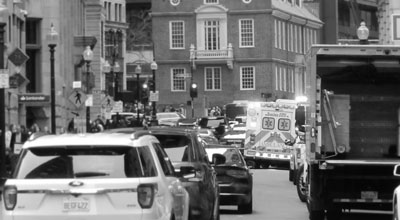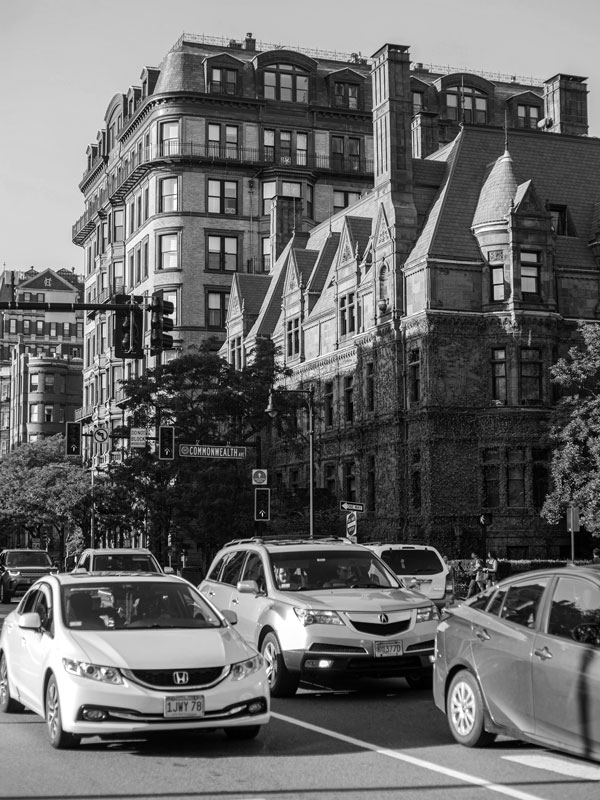Massachusetts Motor Vehicle Accident Attorneys
Being a Bad Driver Isn’t an Excuse
A bad motor vehicle accident is traumatic for everyone involved. A negligent driver turns a daily task like commuting into a nightmare. Your car ends up in the shop. You end up in the hospital, or worse. There’s no excuse for something like that. We'll be by your side making sure this affects you as little as possible. As experienced car accident attorneys, we will get your life back on track.
What Steps Should You Take After a Vehicle Collision?
After a motor vehicle collision, there is usually confusion and chaos. Yet, there are crucial steps that accident victims must take. There are also some things that you should not do! Each step will help protect your rights and help hold the careless driver liable for your injuries and damages.
Here are some DOs and DON’Ts following a car accident:
- DO call for emergency medical assistance if needed.
- DO remain calm. If your car is operable, move it to a safe location.
- DO seek treatment from a healthcare professional as soon as possible. This will document any injuries you may have sustained.
- DO gather all available evidence and documentation regarding the other driver, the accident scene, and any damage to the vehicles.
- DO file a Motor Vehicle Crash Operator Report within 5 days if anyone was killed or injured in the accident, or if there is damage in excess of $1,000 to any one vehicle or other property. You MUST do this pursuant to Massachusetts General Laws Chapter 90 Section 26. You MUST also send a copy to the police department with jurisdiction where the crash occurred.
- DO NOT leave the scene, call 9-1-1 for the police. The police will document the accident and a police report will be filed.
- DO NOT speak with any representative of the other driver’s insurance company. Seriously, DO NOT do this. Auto insurance representatives reach out after an accident for a recorded statement. They might seem helpful, but they are looking for ways to lower any potential payout. Politely decline to speak with anyone other than your insurance company. Simply tell them that you are exploring your legal options.
Most Common Types of Car Collisions
We’ve seen a lot of different car accident claims represented in court. They vary in causation and effect on those involved.
The leading types of crashes in negligence claims include:
Rear End Collision
Rear-end collisions are the most common. They occur when a driver crashes into the back of the vehicle in front of them. It's usually because of distracted driving. Injuries can be severe because one car is stopped or slower than the vehicle hitting it.
Head-On Collision
Head-on collisions occur when two cars traveling in opposite directions crash into each other. The impact happens on the front of the vehicles. In this type of collision, the combined speed of the vehicles often results in life-threatening injuries or death.
Intersection Crash
Intersection crashes often happen when one car's front bumper hits another. Some people call it “getting T-boned.” The collision's damage is focused on a side of the vehicle hitting vulnerable parts of the car like the doors. The damage in a crash like this is disproportionate to one side of the vehicle.
Hit-and-Run Crash
A hit-and-run crash occurs when a person leaves the scene of the accident after colliding with another vehicle. According to Massachusetts General Law Part I, Title XIV, Chapter 90, Section 24, if a driver leaves the scene knowing they struck another car and caused damage without exchanging information, they are guilty of hit‑and‑run.
Common Motor Vehicle Accident Injuries
When a collision involves a +3,000lb piece of metal, people are going to get hurt. Vehicle safety has dramatically improved, but even still, collisions can cause serious injuries.
Some of the most typical injuries for car accident victims include:
- Fractured and broken bones
- Broken ribs
- Neck injuries, including whiplash
- Permanent scarring and disfigurement
- Severe head and face injuries
- Traumatic brain injuries
- Back and spinal cord injuries
- Internal organ damage
- Psychological injuries including anxiety and post-traumatic stress disorder
- Wrongful death
The aftermath of an accident is overwhelming. You’re left with many questions and unsure of how to get back on track. Baker Law specializes in car accident cases in Boston, Massachusetts. We will stand by you and advocate on your behalf as your car accident lawyer.
Proving Liability After a Car Crash
To have a compelling case, we must prove the negligence and liability of the collision. The claim for damages must establish four specific elements of negligence for the court.
Duty of Care
Every motorist has a legal duty to use reasonable care when performing any activity that could cause harm to others. They must operate the vehicle in the same manner as any other cautious and sensible person would in the same position.
Breach of Duty of Care
A driver being careless behind the wheel breaches their duty of care. When that happens, the claim meets this element of proving negligence. In bringing your case to court, we try to prove the person that hit you was driving with distractions or failed to follow traffic laws. That would affirm this element of negligence.
Causation
To prove causation, we help you show the negligent driver’s actions were the cause of your injuries. Videos, photos, and witness testimony are all examples of potential evidence to establish this part of negligence.
Damages
The final part of negligence is proving damages, or the compensation owed as a result of the injury. It’s why we request such meticulous records of your situation. Insurance companies want to see all of the details of what has occurred to prove what is owed. Damages are the simplest to prove in personal injury claims. You can show documentation such as medical records, hospital bills, and repair bills.
Reach Out for a Case Evaluation with No Obligation or Fee — Just Advice.
Injured in a motor vehicle accident? Contact our law firm — especially before speaking with insurance representatives. Get advice at NO cost and with NO obligation. We can answer your questions and provide direction. If you retain us as your attorneys, we handle all communications and negotiations with insurance companies.
Focus on your family and your health, and we’ll get you the maximum compensation you deserve.

